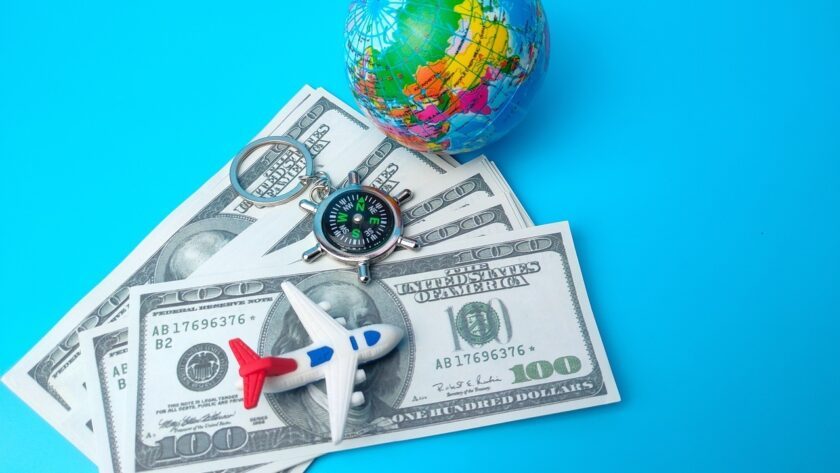
Introduction to Budget Travel
Budget travel, a concept gaining increasing traction globally, is transforming the way people explore new destinations. At its core, budget travel involves planning and executing trips in a cost-effective manner while still maximizing enjoyment and cultural experiences. The importance of budget travel cannot be overstated in today’s economic landscape, where fluctuating financial markets and varying personal income levels make cost-conscious planning essential.
One of the primary benefits of budget travel is the ability to stretch one’s resources, allowing for more frequent excursions or extended stays. Traveling on a budget fosters creativity and flexibility, encouraging individuals to discover hidden gems often overlooked by conventional tourists. Moreover, budget-friendly travel options, such as low-cost airlines, budget accommodations, and affordable local dining, are continuously evolving, making it easier than ever to embark on a fulfilling journey without financial strain.
Current trends in budget travel highlight a shift towards experiential travel, where the focus is on authentic experiences rather than luxury. This shift is evident in the growing popularity of homestays, volunteer travel, and slow travel, where individuals immerse themselves in the local culture and way of life. The mindset necessary for successful budget travel revolves around careful planning, adaptability, and a willingness to embrace unconventional choices. By prioritizing experiences over material comforts and being open to diverse travel methods, budget travelers can achieve profound, memorable journeys.
This blog post will delve into essential strategies for mastering budget travel, including tips on finding affordable transportation, budget accommodations, and cost-effective activities. We will also explore the role of technology in budget travel, offering insights into useful apps and websites. Ultimately, our aim is to equip you with the knowledge and tools to explore the world without breaking the bank, ensuring that your travel aspirations are both attainable and fulfilling.
Planning Your Trip: Research and Flexibility
When embarking on budget travel, thorough research and flexibility are paramount. Identifying affordable destinations is the first step. Websites like Expedia, Skyscanner, Kayak, and Google Flights can help you compare prices across various destinations. Look for emerging or less popular locations, as they often offer better deals without compromising the experience. Additionally, explore travel blogs and forums where seasoned travelers share insights on cost-effective spots.
The timing of your travel is another crucial factor. Traveling during the off-season can significantly reduce costs on flights, accommodations, and attractions. For instance, visiting Europe in late autumn or early spring can help you avoid the summer crowds and high prices. Similarly, Asia’s shoulder seasons, between the monsoon and peak tourist periods, offer pleasant weather and affordable rates. Flexibility with your travel dates can lead to considerable savings.
Being adaptable with your plans can also open doors to unexpected deals. Subscribe to fare alerts and newsletters from airlines and travel websites. Flash sales and last-minute offers can provide substantial discounts. Moreover, consider alternative airports and transportation modes, such as trains or buses, which can be more economical than flights.
Setting a realistic travel budget is essential for a successful trip. Break down your expenses into categories: transportation, accommodation, food, activities, and miscellaneous. Prioritize your spending based on personal preferences. For example, if local cuisine is a highlight for you, allocate a larger portion of your budget to dining. Conversely, if you prefer exploring on foot or using public transport, you can save on transportation costs.
In conclusion, mastering budget travel requires diligent research, flexibility, and strategic budgeting. By staying informed about affordable destinations, being open to adjusting plans, and wisely allocating funds, you can explore the world without breaking the bank.
Finding the Best Travel Deals
When it comes to budget travel, finding the best travel deals is paramount. Ensuring you secure the most affordable options for flights, accommodations, and transportation can significantly reduce your overall expenses. Leveraging the right tools and strategies is essential for maximizing your savings and enhancing your travel experience.
Travel deal websites and apps are invaluable resources for discovering discounted rates. Websites like Expedia, Skyscanner, Kayak, and Google Flights allow you to compare prices across multiple airlines, ensuring you find the lowest fares. Similarly, apps such as Hopper and Momondo can predict future price movements, advising you on the best times to book flights. Signing up for newsletters from these platforms can also provide timely alerts about flash sales and exclusive deals, allowing you to act quickly when prices drop.
When booking accommodations, platforms like Airbnb, Booking.com, and Hostelworld offer a wide range of affordable options. To secure the best prices, consider booking during off-peak seasons or opting for last-minute deals. Additionally, staying in alternative accommodations such as hostels, guesthouses, or even house-sitting can provide significant savings compared to traditional hotels. Always read reviews and compare prices across different platforms to ensure you get the best value for your money.
Transportation can be another major expense during your travels. To cut costs, explore options such as budget airlines, trains, and buses. Websites like Rome2Rio and Omio can help you compare various modes of transportation and find the most cost-effective routes. Moreover, carpooling services like BlaBlaCar can offer affordable and convenient intercity travel options.
Utilizing travel rewards programs and credit card points can further enhance your budget travel strategy. Many credit cards offer travel-related perks, including free flights, hotel stays, and access to airport lounges. By strategically using these points and rewards, you can significantly reduce your travel expenses. Additionally, joining airline and hotel loyalty programs can provide benefits such as discounted rates, priority boarding, and free upgrades.
Incorporating these strategies into your travel planning process will help you secure the best deals, making your adventures both affordable and enjoyable.
Saving Money on Accommodation
When it comes to budget travel, accommodation is often one of the largest expenses. Fortunately, there are several budget-friendly options available that can help you save money while still providing a comfortable place to stay. Exploring various alternatives such as hostels, Airbnb, couchsurfing, and house-sitting can greatly reduce your overall travel costs.
Hostels are a popular choice among budget travelers. They offer dormitory-style rooms, which means you can share a room with other travelers, significantly reducing the cost per night. In addition to being affordable, hostels often provide opportunities to meet like-minded travelers, which can enhance your travel experience. However, the downside is the lack of privacy and potential noise from other guests.
Airbnb offers a wide range of accommodation options, from private rooms in shared homes to entire apartments and houses. This flexibility allows you to choose a place that fits your budget. Booking in advance and opting for longer stays can often secure better rates. It’s also worth negotiating with hosts to see if they can offer a discount for extended stays or last-minute bookings.
Couchsurfing is another excellent option for budget travelers. This platform connects travelers with locals who are willing to offer a free place to stay. Beyond saving money, couchsurfing provides a unique cultural exchange experience, allowing you to immerse yourself in the local lifestyle. The main drawback is the unpredictability of availability and the need to thoroughly vet hosts to ensure safety.
House-sitting is a lesser-known yet highly cost-effective way to secure accommodation. In exchange for taking care of someone’s home and possibly their pets, you get to stay for free. Websites like TrustedHousesitters can connect you with homeowners looking for reliable sitters. This option not only saves you money but also offers the comfort and amenities of a home. However, it requires a level of responsibility and commitment to the homeowner’s requirements.
To maximize savings on accommodation, consider booking well in advance or searching for last-minute deals. Many booking platforms offer discounts for early reservations or unsold rooms close to the check-in date. Additionally, don’t hesitate to negotiate prices, especially for longer stays or during off-peak seasons.
Each accommodation type has its pros and cons, and the best choice depends on your personal preferences and travel style. By exploring these budget-friendly options, you can find affordable places to stay without compromising on comfort or experience, making your travels more enjoyable and financially sustainable.
Cost-Saving Tips for Food and Activities
Traveling on a budget does not mean you have to compromise on experiencing local cuisine and activities. One of the most effective ways to save money on food is by dining at local eateries. These establishments not only offer authentic flavors but are often more affordable than tourist-centric restaurants. Street food is another excellent option that provides a taste of local culture without the hefty price tag.
Another strategy is to cook your own meals. Many accommodations, such as hostels and vacation rentals, come with kitchen facilities. Shopping at local markets for fresh ingredients can be both economical and a cultural experience. Preparing your own meals can significantly reduce daily expenses, allowing you to allocate more of your budget towards activities and experiences.
When it comes to activities, there are numerous free or low-cost options that offer enriching experiences. Walking tours are a fantastic way to explore a new city and learn about its history and culture. Many cities offer free walking tours led by knowledgeable guides who work for tips. Museums and parks are also excellent options, with many offering free admission on certain days or discounted rates for students and seniors.
Finding discounts on attractions and entertainment can further stretch your budget. Before your trip, research discount passes or combo tickets that offer reduced prices for multiple attractions. Websites and apps dedicated to travel deals often feature promotions on activities, making it easier to enjoy popular sights without overspending.
Traveling during off-peak seasons can also lead to significant savings. Not only are flights and accommodations typically more affordable, but attractions are less crowded, allowing for a more enjoyable experience. Additionally, some destinations offer special events and festivals during these times, providing unique experiences at a lower cost.
By implementing these cost-saving strategies, you can enjoy a rich and fulfilling travel experience without breaking the bank. Dining at local eateries, cooking your own meals, and taking advantage of free or discounted activities will allow you to make the most of your budget while exploring the world.
Staying Safe and Healthy on a Budget
When embarking on budget travel, ensuring your safety and health should remain a top priority. One of the first steps is to invest in affordable travel insurance. While it may seem like an unnecessary expense, travel insurance can save you significant money in the long run by covering unexpected medical emergencies, trip cancellations, or lost belongings. Compare different plans and select one that suits your needs without straining your budget.
Being aware of local safety concerns is crucial. Research your destination beforehand to understand the common safety issues. This can include understanding areas to avoid, recognizing common scams, and knowing the local emergency numbers. Additionally, stay connected with local news and updates during your stay to remain informed about any rising safety concerns.
Securing your belongings is another essential aspect of safe travel. Use anti-theft bags and wallets, and always keep your valuables close to you. Avoid displaying expensive items like jewelry or electronics that could attract unwanted attention. When staying in hostels or budget accommodations, make use of available lockers and safes.
Maintaining your health while traveling on a budget is equally important. Eating well doesn’t have to be expensive; explore local markets and grocery stores to find fresh, affordable ingredients. Preparing your own meals or opting for local street food can be both cost-effective and nutritious. Staying hydrated is also key, so carry a reusable water bottle and refill it regularly.
In case you need medical attention, research affordable healthcare options at your destination. Many countries offer low-cost clinics or pharmacies where you can get basic healthcare services without breaking the bank. Make sure to carry a basic first-aid kit with essential medications and supplies.
Ultimately, while traveling on a budget, never compromise on your safety and well-being. Prioritize these aspects to ensure a safe and healthy journey, allowing you to fully enjoy your travel experiences without undue stress.




